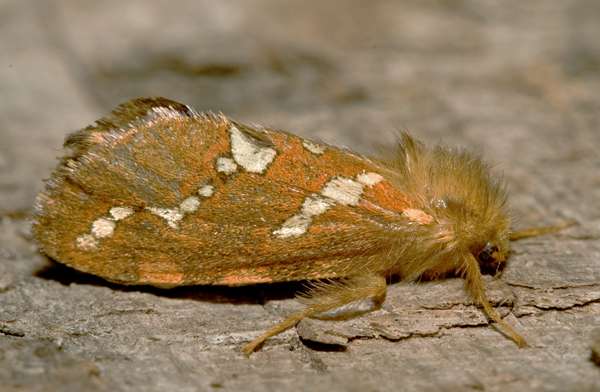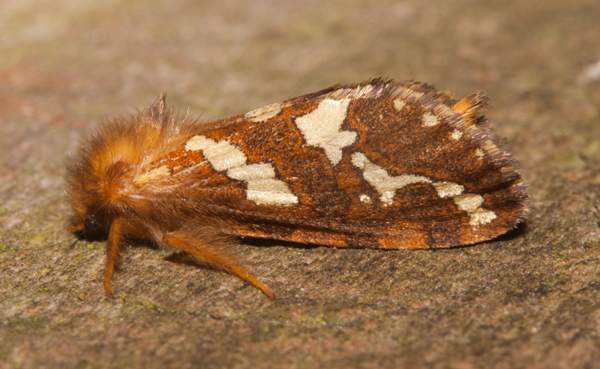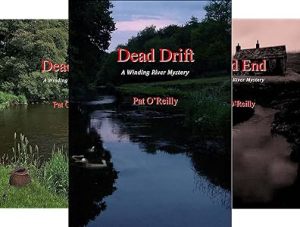Gold Swift - Hepialus hecta
Phylum: Arthropoda - Class: Insecta - Order: Lepidoptera - Family: Hepialidae

Five of the approximately 500 species of the Hepialidae moths (Swift moths) occur in Great Britain and Ireland.
It is the gold markings on the forewing of the male Gold Swift Moth that distinguishes it from the other Swift Moth species found in Britain and Ireland. The female has broad greyish-to-purple bands on the forewing. They fly mainly at dusk in June and July, but have also been recorded in flight at dawn and late afternoon.
The Gold Swift Moth's habitat is rough grassland, open woodland and heathland with bracken
The forewing of the Gold Swift Moth ranges between 12 and 15mm (Male) and 13 and 16mm (Female)

Distribution
This resident moth is both common and widespread throughout Britain and Ireland.
Lifecycle
The Gold Swift Moth is shortlived as its shortened proboscis prevents it from being able to feed. It over-winters twice in its larval form and pupates below ground.
The larval foodplants of the Gold Swift Moth include the roots of young Bracken and some grass species.
Picture: Rob Petley-Jones
Studying butterflies and moths...
Excited at the prospect of flyfishing? So are we, and we're pretty sure you would find the Winding River Mystery trilogy of action-packed thrillers gripping reading too. Dead Drift, Dead Cert, and Dead End are Pat O'Reilly's latest river-and-flyfishing based novels, and now they are available in ebook format. Full details on our website here...
Buy each book for just £4.96 on Amazon...
Please Help Us: If you have found this information interesting and useful, please consider helping to keep First Nature online by making a small donation towards the web hosting and internet costs.
Any donations over and above the essential running costs will help support the conservation work of Plantlife, the Rivers Trust and charitable botanic gardens - as do author royalties and publisher proceeds from books by Pat and Sue.
